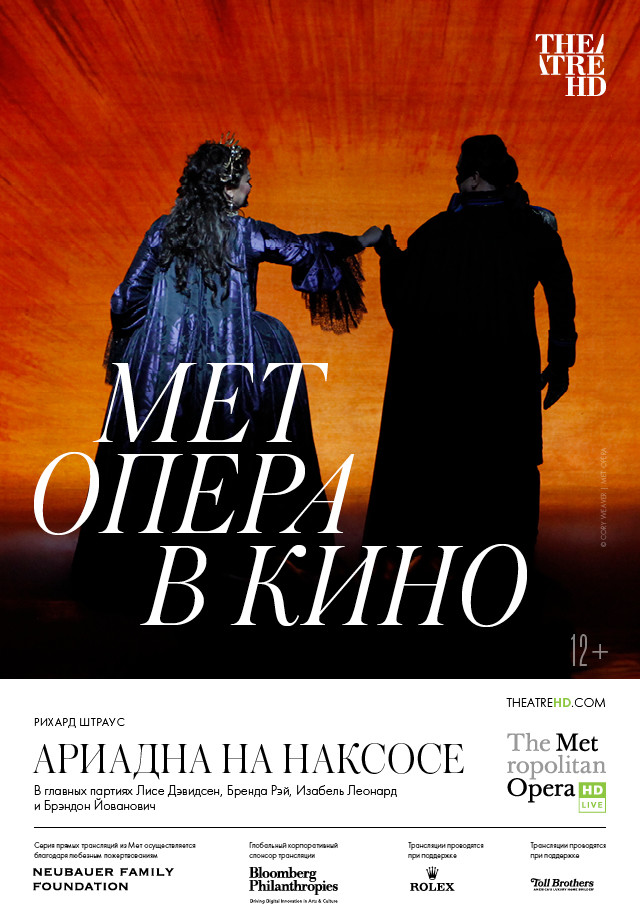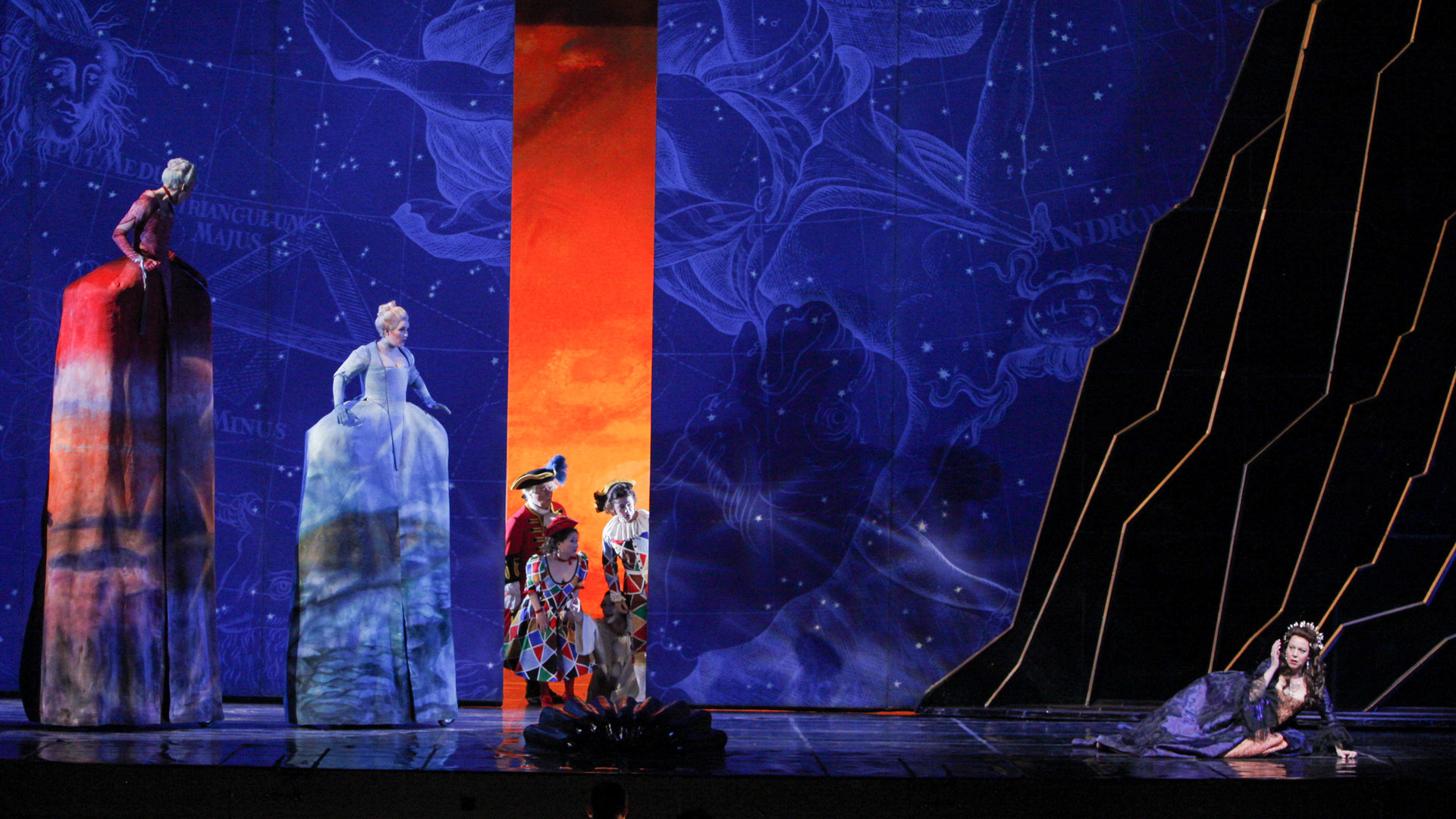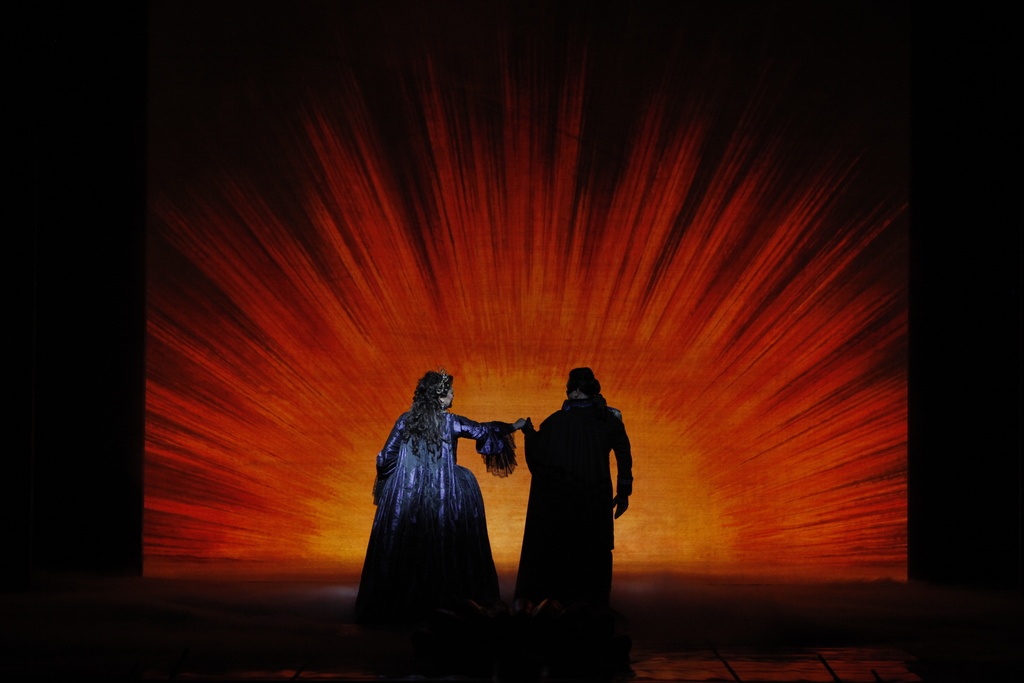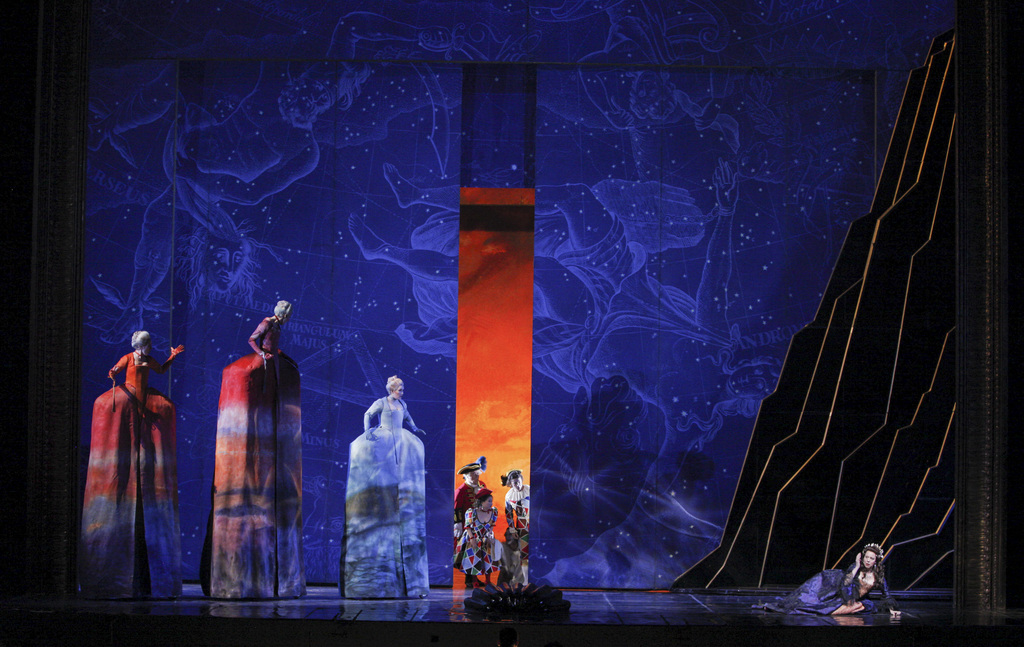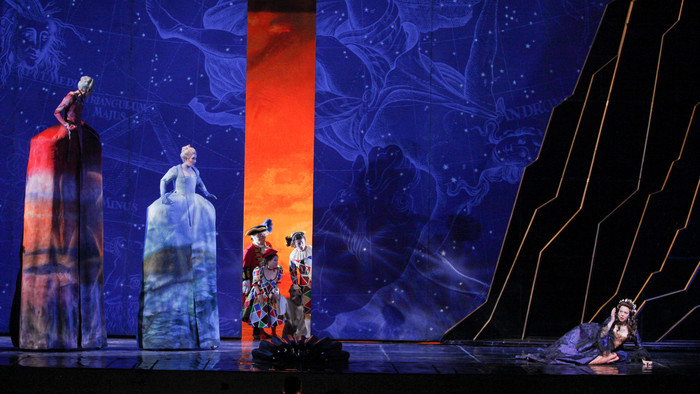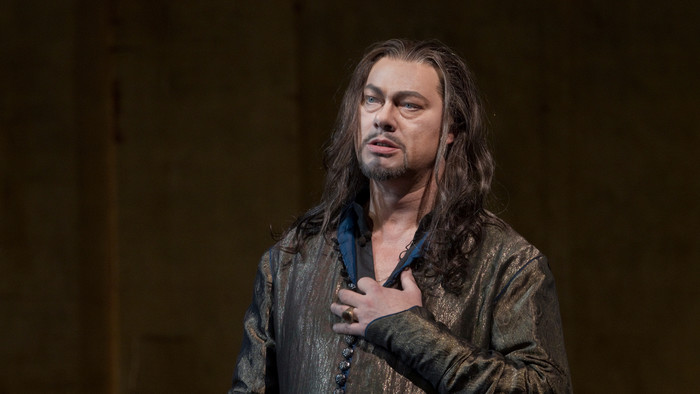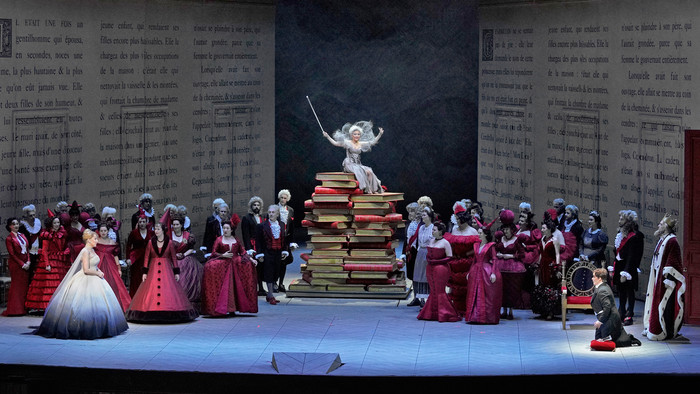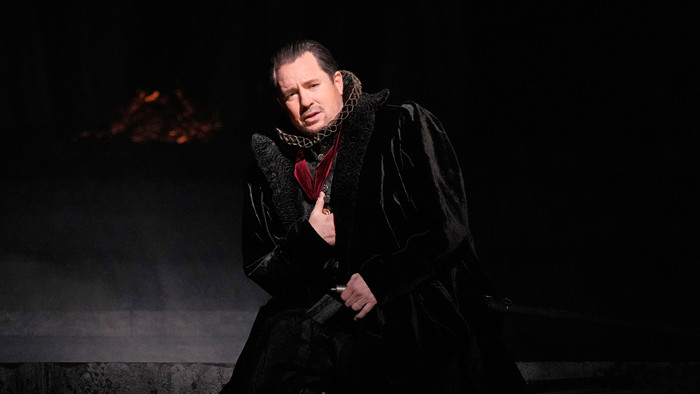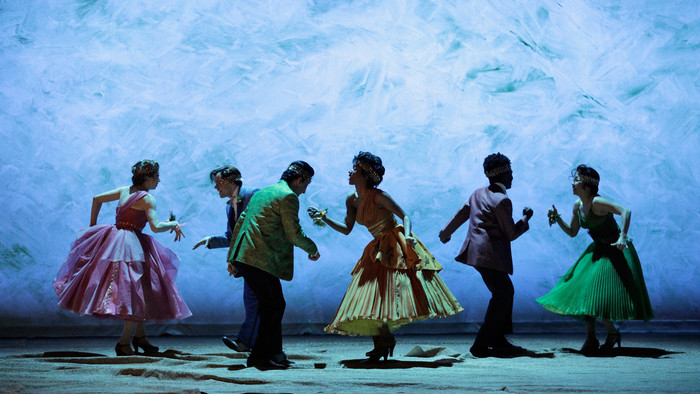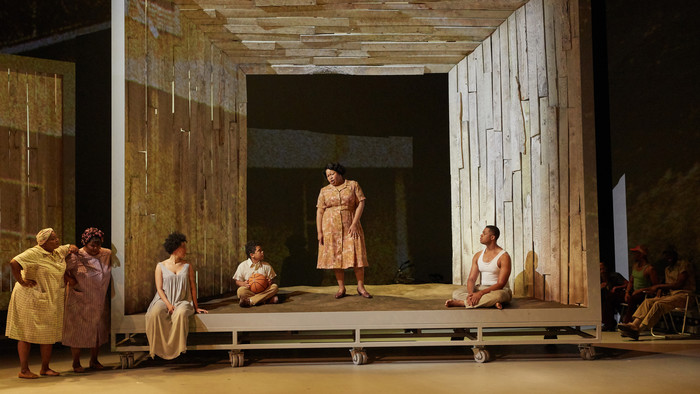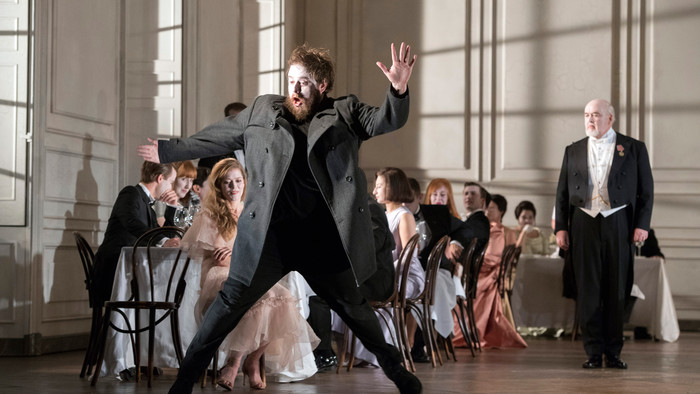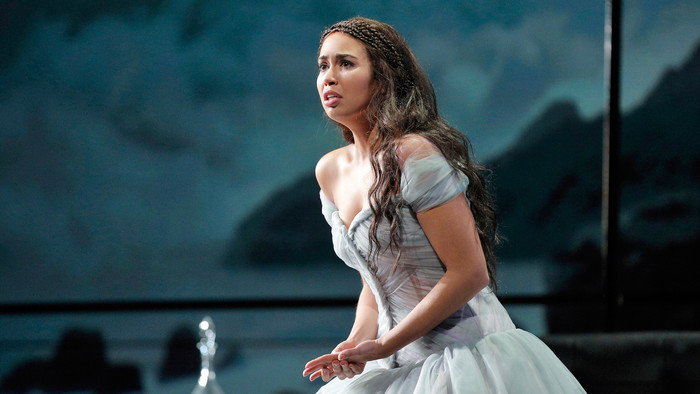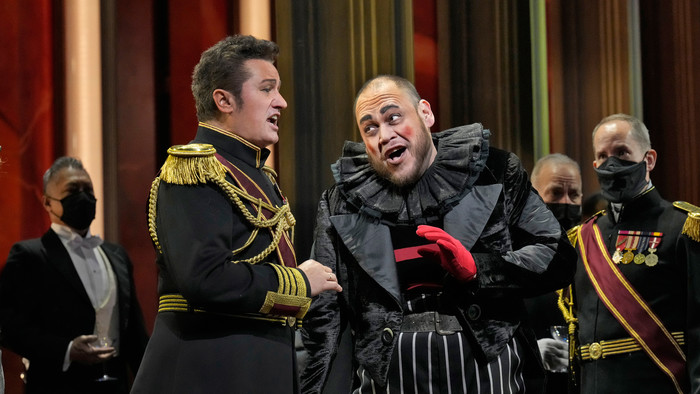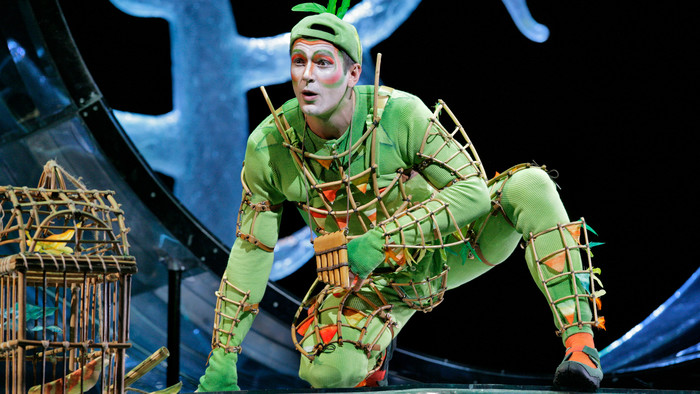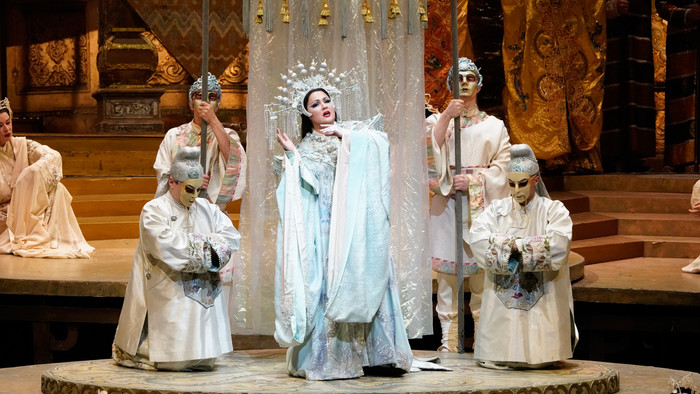Prologue
Vienna, 18th century. Backstage at the private theater in the house of the richest man in Vienna, preparations are in progress for the performance of a new opera seria, Ariadne auf Naxos. The major-domo enters to inform the music master that, immediately after the opera, an Italian comedy will be performed, followed by a fireworks display in the garden. The outraged music master replies that the composer, his young pupil, will never tolerate that, but the major-domo is unimpressed by his objections and leaves. When the composer appears, hoping for a last-minute rehearsal, a disdainful servant tells him that the musicians are still playing dinner music. Suddenly, the tenor rushes in from his dressing room, arguing with the wigmaker. The prima donna furiously comments on the presence of the comedy troupe and their leading lady, Zerbinetta. In the middle of the confusion, the major-domo returns with an announcement: In order for the fireworks to begin on time, the opera and the comedy are to be performed simultaneously.
General consternation soon gives way to practical reactions. The dancing master suggests cutting the opera’s score. The music master persuades the despairing composer to do so, while the two lead singers independently urge him to abridge the other’s part. Meanwhile, Zerbinetta gives her troupe a briefing on the opera’s plot. Ariadne, they are told, has been abandoned by her lover Theseus on the island of Naxos, where she now waits for death. Zerbinetta, however, claims that all Ariadne really needs is a new lover. When the composer vehemently disagrees, Zerbinetta begins to flirt with him. Suddenly, the young man finds new hope. Filled with love and enthusiasm for his work, he passionately declares music the greatest of all the arts. But when he catches sight of the comedians, ready to go on stage, he realizes with horror what he has agreed to. He blames the music master for the artistic debacle and runs off.
The Opera
The Ariadne myth tells how Prince Theseus of Athens set out for Crete to kill the Minotaur, a creature half man, half bull, who was concealed in a labyrinth. Princess Ariadne of Crete fell in love with Theseus and gave him a ball of thread that enabled him to find his way out of the labyrinth after he had killed the Minotaur. When Theseus left Crete, he took Ariadne with him as his bride. During their voyage home, they stopped at the island of Naxos. While Ariadne was asleep, Theseus slipped away and continued his journey to Athens without her. The opera Ariadne auf Naxos begins at this point.
Ariadne is alone in front of her cave. Three nymphs look on and lament her fate. Watching from the wings, the comedians are doubtful whether they will be able to cheer her up. Ariadne recalls her love for Theseus, then imagines herself as a chaste girl, awaiting death. Harlekin tries to divert her with a song, but Ariadne ignores him. As if in a trance, she resolves to await Hermes, messenger of death. He will take her to another world, where everything is pure. When the comedians’ efforts continue to fail, Zerbinetta finally addresses Ariadne directly, woman to woman, explaining to her the human need to change an old love for a new. Insulted, Ariadne leaves. After Zerbinetta has finished her speech, her colleagues leap back onto the scene, competing for her attention. Zerbinetta gives in to Harlekin’s comic protestations of love and the comedians exit.
The nymphs announce the approach of a ship: It carries the young god Bacchus, who has escaped the enchantress Circe. Bacchus’s voice is heard in the distance, and Ariadne prepares to greet her visitor, whom she thinks must be death at last. When he appears, she at first mistakes him for Theseus come back to her, but he majestically proclaims his godhood. Entranced by Ariadne’s beauty, Bacchus tells her that he would sooner see the stars vanish than give her up. Reconciled to a new existence, Ariadne joins Bacchus as they ascend to the heavens. Zerbinetta sneaks in to have the last word: “When a new god comes along, we’re dumbstruck.”
